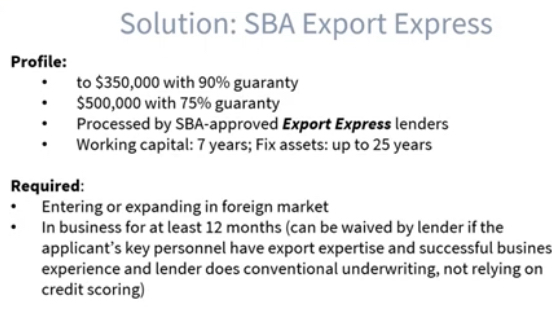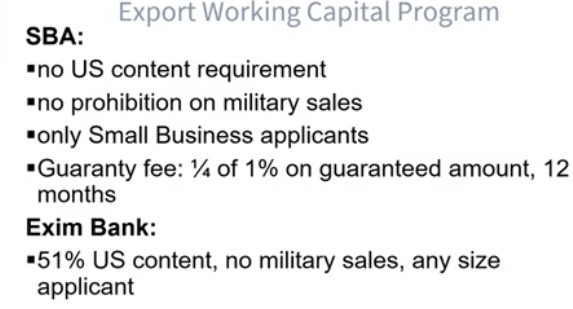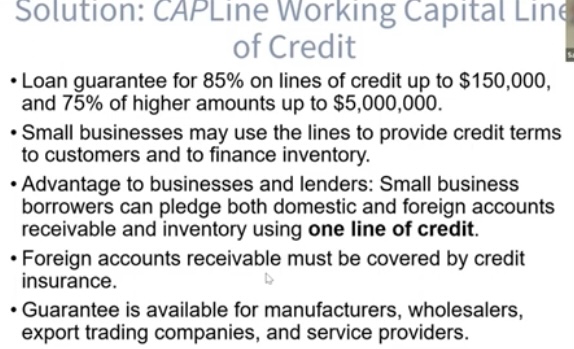Is your company export ready? To find out, says Florida SBDC at FIU consultant Shelly Bernal, answer the following questions:
- Does your company have a product that has been successfully sold in the domestic market?
- Can your company commit sufficient production capacity to the export market?
- Is your company willing to modify product packaging and ingredients to meet foreign import regulations and cultural preferences?
- Is your company willing and able to dedicate time and resources to the process of developing export markets?
If your company is ready, there are many reasons to go forward, says Bernal, who works at the small business development center within FIU’s College of Business. She sent along this information from the U.S. Small Business Administration.
According to the SBA, small firms account for 97% of all U.S. exporters. There are many ways to become involved in exporting, from selling to domestic buyers who then export your product to exporting products yourself (commonly referred to as “direct exporting”).
Then there’s this: Companies that export grow faster and fail less often than companies that don’t.
Exporting firms expand their annual total sales about 0.6% to 1.3% faster and are nearly 8.5% less likely to go out of business, regardless of time period or export volume. Among the reasons why are economies of scale, the opportunity to spread out business risk and increased revenue and profits from additional markets.
And did you know exporting is not just for products? Since 1980, U.S. service exports have grown about 290% faster than exports of goods. The U.S. service sector is extremely advanced and internationally competitive. In-demand service exports include accounting, advertising, engineering, healthcare, technical services and training services.
But all this doesn’t mean it’s easy.
Critical to export success is a strong export strategy, says Bernal, and SBDC at FIU and other agencies can help with that. Bernal performs research for companies using subscription databases SBDC has access to, and she and other SBDC consultants can provide industry research — manufacturing data, consumer consumption data, trade flow data and partner search information — to their SBDC clients for free.
What’s more, by partnering with Enterprise Florida, Bernal can provide an Export Marketing Plan, often 100 pages of deep market research and analysis for a $500 fee. Using the research, Bernal defines what would set up an environment for more potential for success. “The idea is [the company] can use the plan coupled with their own experience to make the best decisions for their company,” she says.
There are a host of other resources through the state’s Gold Key Services available through the state’s Enterprise Florida agency. These include a reimbursed matchmaking service that helps companies meet with potential partners and customers in the countries, and another that reimburses for half of trade show booth costs. There’s also a reimbursement program for website localization development, Bernal said.
Bernal and SBDC at FIU also recently produced a webinar on this topic, including exploring export financing:
View the webinar here for much more information from Bernal and the SBA:
Here is some more information about export financing:

 MORE INFO: Read more about exporting from the SBA here and access the SBA’s free Export Business Planner here.
MORE INFO: Read more about exporting from the SBA here and access the SBA’s free Export Business Planner here.
Please send GrowBiz topic suggestions and feedback to sbdc@fiu.edu.

